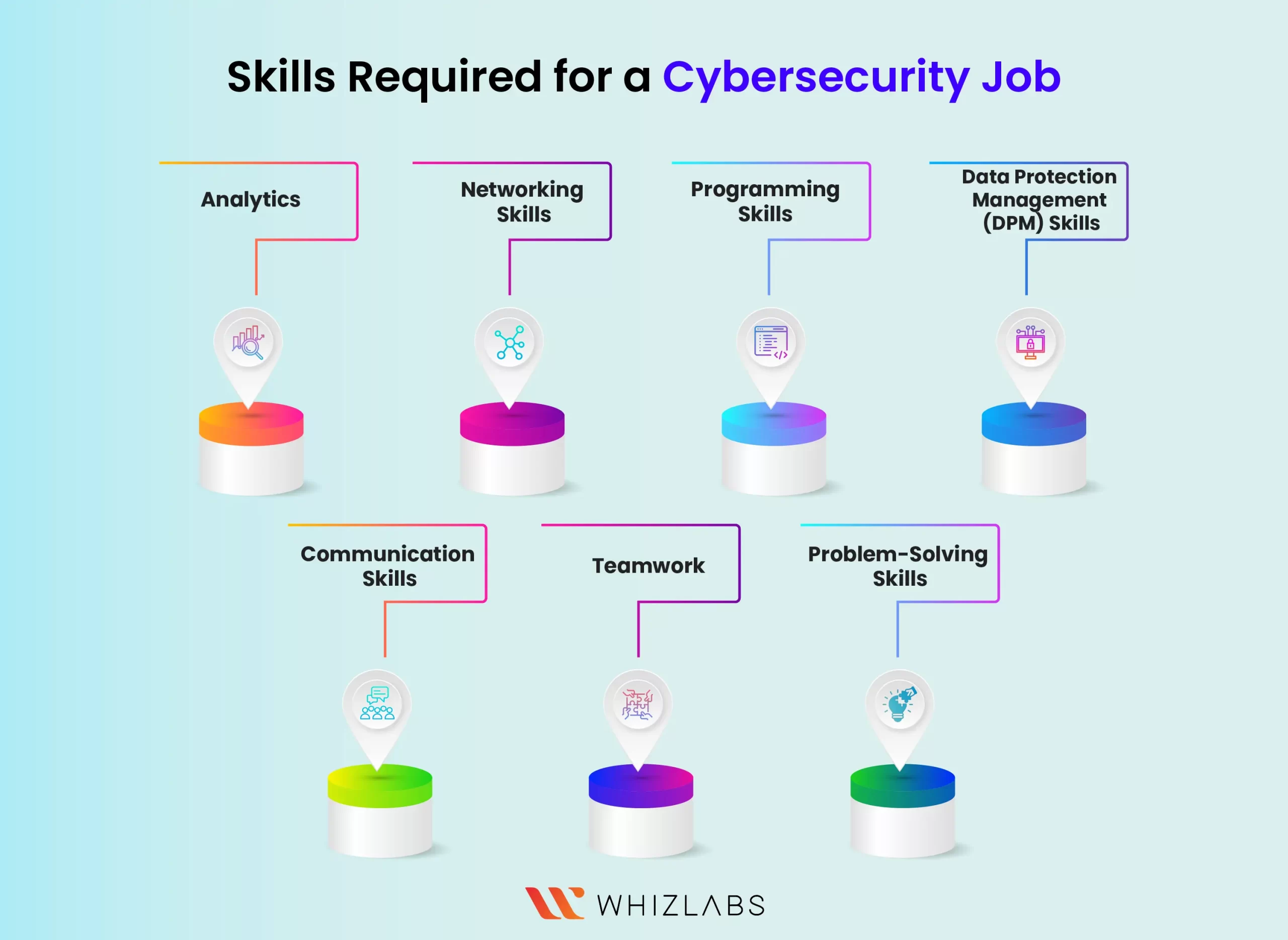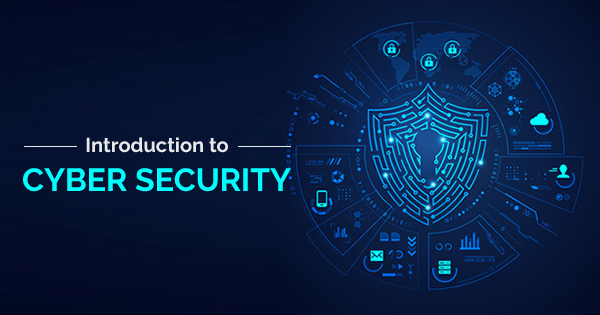In today’s modern world, establishing an online presence is essential for any business aiming to become a successful one. While this connectivity brings companies closer to their clients, it also opens them up to potential threats from various malicious actors.
Consequently, the need for Cybersecurity Professionals has surged to unprecedented levels. The rise of cyberattacks opens many job opportunities for cybersecurity professionals.
This Cybersecurity Career Path article provides a comprehensive overview of cybersecurity career paths and what it takes to excel in the dynamic and critical domain of cybersecurity.
Let’s dig in!
Cybersecurity as a Career Option
The role of Cybersecurity Professionals is absolutely vital in today’s digital world, as they are responsible for safeguarding sensitive information and systems from cyber threats posed by malicious individuals. From ransomware attacks to data breaches, organizations globally are urgently seeking skilled cybersecurity specialists to protect their assets.
The demand for cybersecurity professionals as Cybersecurity Career Path is so high that there is an anticipated shortage of approximately 3.5 million cybersecurity jobs in this field worldwide by 2025, according to Cybercert. With such a significant need for experts in this area, exploring various career paths in cybersecurity can be overwhelming, leaving you unsure about which direction to pursue.
If you are interested in becoming one of the sought-after professionals to fill these positions, gaining insights into the different paths available in the cybersecurity industry is crucial. Understanding the landscape of this dynamic Cybersecurity Career Path field will help you make informed decisions about your career and contribute to making the digital realm a safer place.
How to start your Cybersecurity Career Path?
Making a cybersecurity career doesn’t follow a one-size-fits-all approach. The path to a successful career in this field varies for different individuals.
Some begin early, opting for undergraduate cybersecurity degrees, while others may transition from other IT roles.
So, how do you get into cybersecurity?
Let’s introduce you to some steps you can take. With determination, the timing of your start and your background won’t hinder your journey toward a successful cybersecurity career path.
Get a degree
The first step that can be taken to enter the Cybersecurity Career Path is by obtaining a degree. Many individuals opt for undergraduate programs in fields like cybersecurity, IT, computer science, or information assurance.
For more advanced positions, some employers may even demand a master’s degree as an additional qualification.
Go for Cybersecurity Certifications
Certifications play a vital role in your cybersecurity journey to showcase your dedication to enhancing your skill set while on Cybersecurity Career Path. Here’s a list of top cybersecurity certifications that you can take:
- Certified Cyber Security Analyst (CCA): Ideal for both entry-level learners and career-changing experts, CCA focuses on monitoring computer networks, databases, and infrastructure. It requires some knowledge of computers and possesses problem-solving and effective communication skills.
- CCSP (Certified Cloud Security Professional): It has been ranked as the number one certification for IT professionals, and it is well-suited for IT and information security managers who are responsible for implementing cloud security best practices. It validates expertise in cloud security design, processes, and service orchestration. And they can try for job roles like Cyber Security Consultant, Engineer, and Administrator.
- Certified Information Security Manager (CISM): This certification was introduced by ISACA in 2003, and it is an executive-level certification that promotes international security practices and empowers individuals to manage an organization’s information security. It suits professionals involved in security governance and management roles.
- Certified Information Systems Security Professional (CISSP): CISSP is an advanced-level certification for those seeking a career in information security. It is issued by (ISC)2. CISSP holders are considered experts in building, guiding, and managing security standards and policies within organizations.
- Certified Ethical Hacker (CEH): This certificate provides comprehensive knowledge of ethical hacking techniques, allowing you to understand cyber attackers’ methods and fortify your security infrastructure against potential attacks.
By obtaining these sought-after certifications in your Cybersecurity Career Path, you can demonstrate your expertise and commitment to cybersecurity, which can open doors to rewarding opportunities in the field.
Also Read : How to Become a Cybersecurity Architect in 2024?
Enrolling in Cybersecurity Courses
If formal education in cybersecurity doesn’t align with your interests, then enrolling in online courses can be a better idea. These programs can be suits for all individuals, including first-time students and career changers. By joining this online course, you can get a flexible and accessible learning experience.
Taking online cybersecurity courses offers several advantages, including affordability compared to traditional options, without compromising on the essential skills needed Cybersecurity Career Path.
These courses allow you to acquire the fundamental knowledge and expertise required in the cybersecurity field while accommodating your schedule and preferences in your Cybersecurity Career Path.
So, whether you’re a beginner or looking to switch careers as your Cybersecurity Career Path, online cybersecurity courses offer a flexible and cost-effective path to pursue your passion for cybersecurity.
What are the Skills Required for a Cybersecurity Job?
To make a successful Cybersecurity Career Path, you must possess some essential Cybersecurity skills. It may include both technical and non-technical aspects, enabling you to thrive in various cybersecurity jobs roles in choosing Cybersecurity Career Path:
- Analytics: Sharpen your ability to analyze and interpret data for identifying and mitigating cyber threats effectively.
- Networking Skills: Understanding computer networks is crucial as they work extensively with network security and infrastructure.
- Programming Skills: Proficiency in programming languages empowers you to assess and secure software and systems, making you a valuable asset in the cybersecurity landscape.
- Data Protection Management (DPM) Skills: You must hone your skills in safeguarding sensitive information and ensuring compliance with data protection regulations.
- Communication Skills: Effective communication is essential to convey complex technical concepts to non-technical stakeholders.
- Teamwork: Collaborative spirit is essential, as cybersecurity often involves working with diverse teams to combat threats collectively.
- Problem-Solving Skills: Developing strong problem-solving capabilities helps you tackle security challenges and devise robust protective measures.
Know More : 25 Free Questions on Certified in Cybersecurity Certification
What are the highest paid Cyber Security jobs in 2024?
As organizations place increasing emphasis on secure data storage, the demand for cybersecurity experts is on the rise. If you’re curious about the highest-paying cyber security jobs in 2024 and their average salary ranges, here’s the information to give you better insights into potential earnings:
1. Chief Information Security Officer (CISO)
The Chief Information Security Officer (CISO) is a crucial role responsible for safeguarding a company’s information and data security.
In the past, this position had limited scope, but now it is often used interchangeably with CSO (Chief Security Officer) and VP of Security, signifying a more comprehensive role within the organization. The CISO oversees security operations, cyber risk management, cyber intelligence, and security architecture.
To become a CISO, the following requirements must be met:
- A Bachelor’s degree in Computer Science and 7-12 years of work experience is typically required.
- Additionally, certifications like Certified Information Security Manager (CISM) and Certified Ethical Hacker (CEH) are often sought after to demonstrate expertise in the field.
In 2024, the average salary for a CISO is estimated to be around USD $249,000. This substantial compensation reflects the critical nature of the role and the growing demand for skilled cybersecurity professionals in the industry.
2. Information Security Analyst
The role of an Information Security Analyst revolves around safeguarding an organization’s data and systems from cyber threats. On a daily basis, they actively contribute to the development, implementation, and monitoring of security measures to ensure the confidentiality, integrity, and availability of sensitive information.
They possess a profound knowledge of computer networks, operating systems, firewalls, encryption technologies, and various security protocols. This expertise allows them to effectively analyze and identify potential threats and vulnerabilities, enabling the development of robust countermeasures to mitigate risks.
The average annual salary for an Information Security Analyst was found to be $89,933 per annum and it reflects the importance of their critical role in protecting valuable organizational assets from cyber-attacks.
3. Cybersecurity Engineer
As a Cyber Security Engineer, your role involves collaborating closely with senior teams to develop and define IT security policies and procedures. You will be responsible for conducting regular security testing and overseeing the day-to-day monitoring of services. They may be involved in identifying vulnerabilities, offering expert technical advice, and implementing continuous service improvement plans.
The skill set for this role should include various areas, including cyber security, information security, firewalls, programming languages, risk management, security operations, DevOps practices, incident response, network security, and innovative thinking. Effective communication skills are essential to convey your findings and recommendations clearly.
In the United States, the average salary for a Cyber Security Engineer is $131,666 per year. Additionally, there is potential for extra cash compensation, with an average ranging from $19,294 to $36,015, highlighting the importance and demand for professionals in this critical field.
4. Penetration Testers
In today’s cyber security world, there’s a growing demand for skilled professionals known as “ethical hackers.” Many large organizations are now employing full-time staff or third-party contractors to simulate cyber-attacks on their computer systems.
These experts are often referred to as penetration and vulnerability testers and they play a crucial role in identifying and resolving potential weaknesses that could be exploited by malicious cybercriminals.
According to CyberSeek, the average salary for penetration and vulnerability testers is approximately $101,662. Moreover, it’s interesting to note that 24% of employers in this field actively seek candidates with advanced degrees, indicating the increasing recognition of the value that higher education brings to the role.
5. Cloud Security Specialist
A cloud security specialist’s role spans various industries, including cloud security providers, enterprise organizations, and security firms. They have the vital responsibility of protecting cloud platforms and services from common security threats. Their unique contributions include:
- Assessing Existing Infrastructure: They carefully evaluate the current cloud infrastructure, identifying potential threats and weaknesses that need addressing.
- Implementing Robust Security Measures: Cloud security specialists build and put into action effective security services and controls, ensuring the safety of sensitive data and preventing unauthorized access.
- Monitoring for Threats: They continuously monitor cloud systems to promptly detect any suspicious activities or potential threats, enabling swift response and mitigation.
- Assisting in Incident Response: When a security breach occurs, they actively contribute to the incident response and recovery efforts, minimizing the impact and restoring normalcy.
The average salary for a Cloud Security Specialist is found to be $118,868 per year in the United States.
They collaborate with cloud engineers and architects and work as a team to develop comprehensive cloud security solutions tailored to the organization’s specific requirements. The scope of their responsibilities may vary depending on the company’s size, with smaller organizations facing different challenges compared to larger enterprises.
6. Application Security Engineer
The role of an application security engineer is of utmost importance for businesses aiming to integrate software, such as AWS or Azure, into their daily operations. These skilled professionals are dedicated to ensuring that security and privacy constraints are ingrained into software from the outset.
Their expertise lies in securing all software and business applications, both internal and external, with a focus on maintaining the stability of the infrastructure. By proactively building robust security measures, they safeguard against potential threats from hackers or malicious systems that could compromise the integrity of the organization’s operations.
In essence, application security engineers play a vital role in fortifying software applications, making them an invaluable asset in today’s technology-driven business landscape.
FAQs
What are the career paths in cyber security?
In cybersecurity, there are three primary career paths such as engineering, testing, and response. Each of these paths requires a unique set of qualities and aspirations, making them well-suited for individuals with distinct work ethics and personality types.
Is cybersecurity a good career path?
As the demand for cybersecurity experts continues to rise, this profession stands out as one of the most promising and lucrative career options available in today’s job market.
In addition to being a highly sought-after field, a career in cybersecurity offers significant financial rewards. Professionals in this domain often enjoy higher salaries compared to other technology-related roles.
Summary
Hope this Cybersecurity Career Path article outlines the cybersecurity career path and the importance of cybersecurity in today’s digital landscape in a detailed way.
We all know that, in the last couple of years, the need for cybersecurity experts has grown significantly. Not only is there a high demand for their skills, but these professionals also enjoy comparatively higher salaries than many other IT jobs.
If you’re thinking about pursuing a Cybersecurity Career Path, this is the perfect time to focus on improving your skills and knowledge to become a successful cybersecurity professional.
If you have any questions or need advice about starting a career in cybersecurity, don’t hesitate to reach out to us.
- A Tour of Google Cloud Hands-on Labs - December 12, 2023
- Mastering Azure Basics: A Deep Dive into AZ-900 Exam Domains - December 4, 2023
- Exploring the Benefits of Validation Feature in Hands-on Labs - October 10, 2023
- 20+ Free MD-102 Exam Questions on Microsoft Endpoint Administrator - September 27, 2023
- 20+ Free MS-102 Exam Questions on Microsoft 365 Administrator Certification - September 25, 2023
- AWS Certified Developer Salary in 2024 - September 19, 2023
- Guide to SharePoint, OneDrive, and Teams External Sharing in Teams - September 10, 2023
- What is Cross-Tenant Synchronization | MS-700 Certification - August 31, 2023



